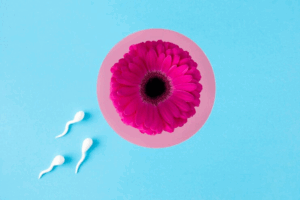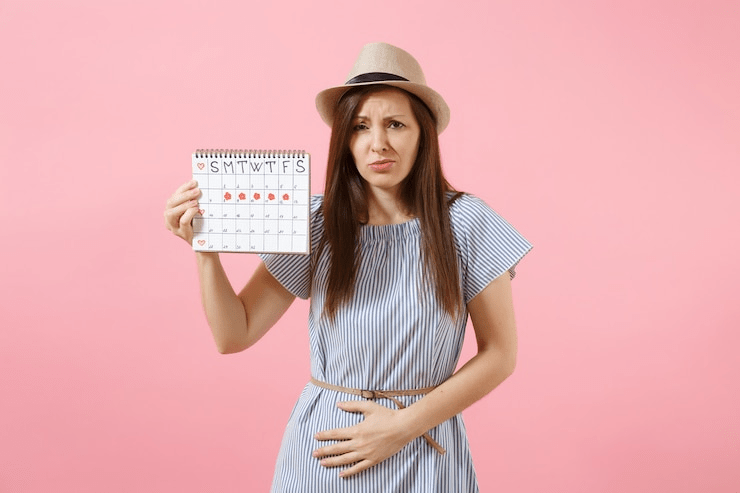
Zero Sperm Count After Vasectomy Reversal: Causes, Diagnosis & Solutions
Zero sperm count after vasectomy reversal is a common concern for men trying to regain fertility after having a vasectomy. While many men regain sperm

At some point, nearly every woman will ask the same question: What age periods stop? Whether it’s out of curiosity, preparation, or health reasons, understanding the age at which periods typically stop—and the biological process behind it—is essential for long-term wellness. This phase of life, known as menopause, is a major milestone in a woman’s reproductive journey.
In this detailed guide, we’ll explore when menstruation naturally ends, what signs and symptoms to expect, and how to manage this transition with ease. Let’s break down everything you need to know.
Most women stop having periods between the ages of 45 and 55, with the average age being around 51. This is the natural result of a woman’s body reducing its reproductive hormone production—mainly estrogen and progesterone—over time.
| Stage | Age Range |
|---|---|
| Perimenopause | Late 30s to mid-40s |
| Menopause | 45–55 (average age 51) |
| Postmenopause | After 12 months without a period |
It’s important to note that this age range can vary widely depending on several factors such as genetics, lifestyle, health conditions, and environmental factors.
Menstruation stops due to a natural decline in the reproductive hormones estrogen and progesterone. These hormones regulate the monthly menstrual cycle. Over time, your ovaries begin to produce less estrogen, and the release of eggs becomes irregular until it ceases completely.
When ovulation stops, the uterus no longer builds up a lining, and periods stop as a result.
Before menstruation ends permanently, women go through a transitional phase called perimenopause. This stage can begin as early as your late 30s or early 40s and can last several years.
Irregular periods
Hot flashes
Mood swings
Vaginal dryness
Sleep disturbances
Breast tenderness
Lower fertility
Perimenopause can be confusing because the symptoms often mimic those of PMS or other hormonal changes. However, this is the body’s way of gradually moving toward menopause.
If you’re wondering what age periods stop, you’ll likely notice these symptoms as a sign that menopause is near:
One of the first signs is that your periods may start becoming inconsistent. You might skip a month or two, or your flow might become heavier or lighter than usual.
These sudden bursts of warmth and sweating are the hallmark symptoms of menopause and can affect daily life and sleep quality.
Difficulty falling asleep or staying asleep becomes more common as hormonal levels fluctuate.
Decreasing estrogen affects the vaginal lining, making it thinner and less lubricated.
Irritability, anxiety, and mood swings may appear or intensify during this time.
Hormonal shifts often lead to reduced sexual desire or arousal.
If your periods stop before the age of 40, this is considered premature menopause. In such cases, it’s essential to consult a doctor to rule out underlying conditions such as:
Autoimmune disorders
Thyroid issues
Ovarian failure
Genetic factors
Also, if you experience heavy bleeding, spotting after menopause, or unusual pain, these may signal other health concerns.
Once you’ve gone 12 consecutive months without a period, you’ve officially entered postmenopause. While many symptoms may ease after this point, some long-term effects of decreased estrogen can include:
Bone density loss (osteoporosis)
Increased risk of heart disease
Dry skin and hair thinning
Loss of breast fullness
Routine health checks, a healthy diet, and physical activity become even more crucial during postmenopause.
Though menopause is a natural part of aging, it doesn’t have to be uncomfortable. Here are a few ways to manage the symptoms effectively:
Include foods rich in calcium, vitamin D, and phytoestrogens like flaxseeds, soy, and legumes to support hormone balance.
Exercise not only supports bone strength and cardiovascular health but also helps improve mood and sleep.
Dryness is a common issue. Stay hydrated and use natural moisturizers or vaginal lubricants if needed.
Mindfulness, yoga, and deep breathing can help you handle stress and mood fluctuations more effectively.
In some cases, Hormone Replacement Therapy (HRT) may be recommended. Talk to your healthcare provider about benefits and risks.
A: During perimenopause, this is common. However, if periods return after 12 months of no bleeding, see a doctor.
A: Yes. As long as you’re still having periods, pregnancy is possible. Use contraception until menopause is confirmed.
A: No, that’s considered premature menopause and should be evaluated by a medical professional.
So, what age periods stop? The answer lies between ages 45 and 55, but no two women experience menopause the same way. The most important thing is to listen to your body, stay informed, and seek professional advice when necessary.
With the right information and a little planning, this life phase can become a time of empowerment, self-care, and renewed focus on overall well-being.

Zero sperm count after vasectomy reversal is a common concern for men trying to regain fertility after having a vasectomy. While many men regain sperm

Introduction Is Prolistem effective for azoospermia? This question is vital for many men struggling with infertility due to azoospermia — a condition characterized by the
Prolistem, a patented formula, has not been evaluated by the Food and Drug Administration. This product is not intended to diagnose, treat, cure, or prevent any disease.
PROLISTEM® is a Patented Formula
Copyright © 2025 Prolistem®